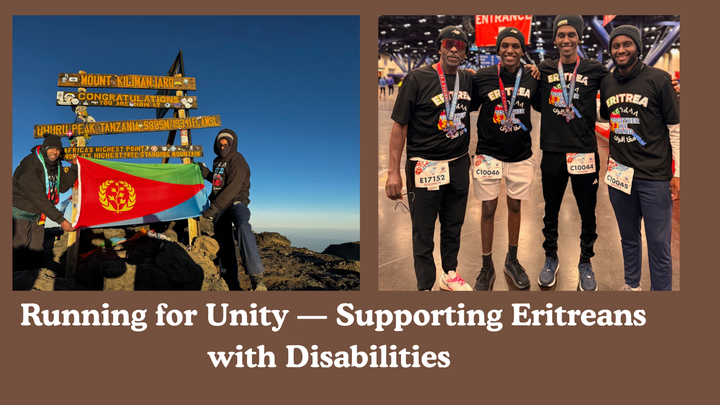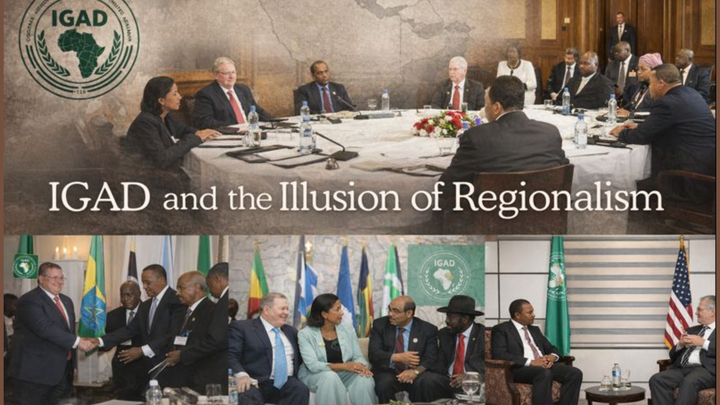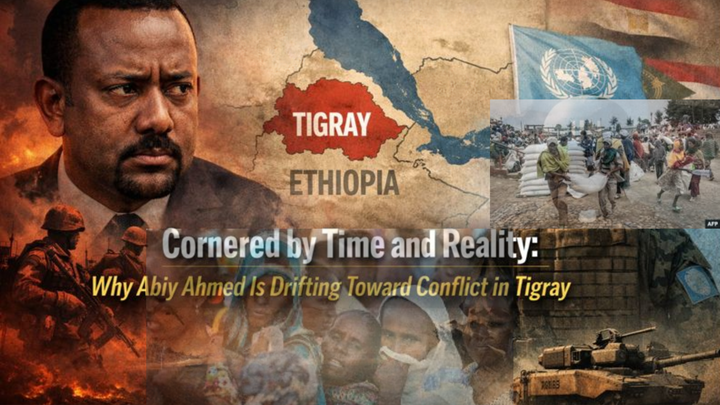Abiy Ahmed’s Border Strategy Collapses as Communities Choose Peace with Eritrea
Across Afar, Tigray, Wolkait, and Amhara, border communities are rejecting Abiy Ahmed’s war agenda and choosing peace with Eritrea — reshaping the Horn of Africa’s future

By Amanuel Biedemariam
For more than two years, Prime Minister Abiy Ahmed has sought to weaponize Ethiopia’s borderlands as leverage against Eritrea. His plan depended on coercing the Afar, Wolkait, Tigray, and Amhara into aligning with his war agenda. That plan has now unraveled. In a dramatic turn, communities once trapped between state pressures and regional rivalries are rejecting conflict and pursuing peace directly with Eritrea.
Afar: Choosing Peace Over Conflict
After Tigray’s historic decision earlier this year to seek peace with Eritrea, the Afar people followed suit. On August 17, 2025, Afar communities in Ethiopia, together with their Eritrean counterparts, decisively rejected Abiy Ahmed’s attempts to turn their region into a staging ground for conflict over Red Sea access—particularly aimed at the port of Assab.
In a landmark act of cross-border unity, the Afar embraced peace through initiatives such as the Tsimdo movement, a grassroots campaign for regional engagement. They refused to be drawn into Addis Ababa’s militarized ambitions. This defiance, in a region of immense strategic value, strikes at the heart of Abiy’s escalation strategy and signals a profound shift: local communities are asserting their will against state-driven war agendas. The depth of this people-to-people engagement is unprecedented and lays a foundation that undermines the cycle of conflict perpetuated by successive Ethiopian leaders.

Tigray: Defiance and a Strategic Turn to Peace
From the beginning of 2025, the people of Tigray rejected Abiy Ahmed’s attempts to drag them into hostilities against Eritrea. Instead of bowing to central-government pressure, Tigrayans made a deliberate and long-term decision to pursue peace. This choice represents a bold act of defiance, stripping Abiy of one of his most critical political and military cards. By denying him the ability to use Tigray as a platform for his anti-Eritrea campaign, they reshaped the regional calculus in ways that dramatically weaken his ability to escalate conflict.
Wolkait: Defying the Central Government
Abiy also tried to use Wolkait as bait, promising Tigrayans the region if they aligned with him. His hope was to lure them into confrontation with Eritrea and the Amhara. Yet Tigray rejected this trap, realizing that such a path would only plunge them into destructive conflict with their neighbors. Instead, they began exploring dialogue and coexistence.
Meanwhile, the people of Wolkait themselves—long aligned with Eritrea, and especially since the Tigray war—have deepened their direct ties across the border. By choosing peace and practical engagement, Wolkait undercut Abiy’s hope of turning this strategic corridor bordering Sudan into a launchpad against Asmara. Together, Tigray’s refusal to be weaponized and Wolkait’s embrace of peace dealt a decisive blow to Abiy’s western front strategy.
Tigray and Amhara: From Hostility to Dialogue
Abiy’s wider scheme depended on sowing resentment. He painted Eritrea as a historic abuser and dangled Wolkait as a reward for cooperation. Instead, the opposite has occurred: Tigray and Amhara communities have begun to engage directly with one another. For the first time in living memory, these two peoples are exploring peaceful coexistence, undermining Abiy’s divisive agenda and weakening his control over the north.
A Strategy in Ruins
What was once envisioned as a three-pronged approach—using Afar in the east, Wolkait in the west, and Tigray and Amhara in the north—has collapsed. The Afar embraced peace with Eritrea. Tigray rejected war. Wolkait strengthened its cross-border ties. Amhara and Tigray are opening unprecedented channels of dialogue.
The result is stark: Abiy’s administration is losing control of the periphery and finds itself increasingly confined to Addis Ababa and the central plateau. Even in the outskirts of the capital, the presence of Fano forces keeps the government on edge, prompting harsh and desperate measures.
Implications for the Region
For Eritrea, people-to-people diplomacy is triumphing where hostile statecraft has failed. For Ethiopia, the federal center is weakening as communities assert their independence from government war agendas. For the Horn of Africa, a new paradigm is emerging in which local populations—not central governments—are shaping the path to peace and stability.
Abiy Ahmed, isolated at home and abroad, has become more dangerous. With elections looming and vast swaths of the country beyond his control, the temptation to declare a state of emergency and suspend the vote is growing. His calculations are no longer about Ethiopia’s future but about clinging to power. That makes him a risk not only to Ethiopia but to the wider region.
Abiy’s failure to mobilize Ethiopia’s borderlands against Eritrea is not just a strategic defeat. It represents a deeper historical shift: Ethiopia’s periphery is reclaiming its agency, and Eritrea is prevailing by advancing peace, stability, and neighborly coexistence.
Conclusion
Ethiopia today is on the brink of state failure. Inflation has soared above two hundred percent, leaving doctors, civil servants, and ordinary families unable to feed themselves. The government can no longer guarantee basic security for its citizens, as shown by its loss of control in northern Ethiopia and across the regions bordering Eritrea.
Abiy Ahmed’s foreign policy adventures—in Somalia, Eritrea, and Sudan—are not only reckless but dangerous. They open the door for direct Egyptian involvement, particularly through Somalia’s security agreement, turning Ethiopia’s instability into a wider regional flashpoint.
By pursuing personal power at the expense of the nation, Abiy is accelerating the disintegration of Ethiopia. What lies ahead is not just a crisis for one country but the prospect of a civil war on a scale Africa has never witnessed.
Enjoyed this article? Support Nefasitpost by subscribing or making a donation today at Nefasitpost.com. Together, we can keep independent voices strong.
Get my book, Eritrea The Struggle Is Long, and Victory is Certain




Comments ()